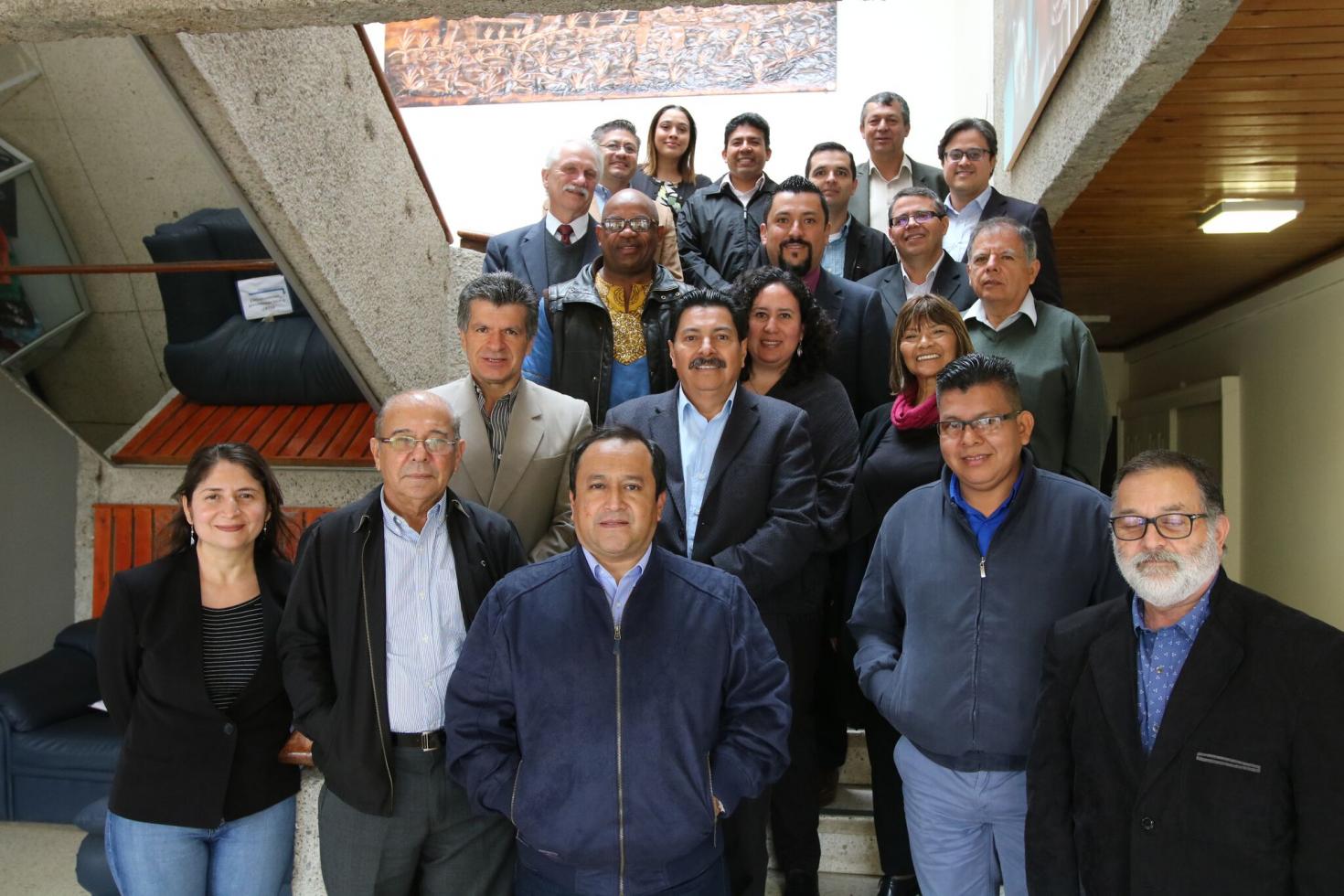Through the application of methodologies, dialogue and group exercises, participants learned how to design projects that can be evaluated at all stages

San José, Costa Rica (IICA). A workshop entitled “Foundations for the design of agricultural plans, programs and projects with criteria for assessing evaluability” was held on December 12 and 13 at the headquarters of the Inter-American Institute for Cooperation on Agriculture (IICA). The aim was to strengthen technical capabilities in the design of public policy instruments to promote the competitiveness of agricultural chains, based on criteria of evaluability.
The workshop was organized by IICA in the context of its Flagship Project on Competitiveness and Sustainability of Agricultural Chains (FP-Chains), in response to a request from individuals who attended the event “Sharing experiences to promote the marketing of cocoa and its sub-products,” held last September in Bogota, Colombia.
The purpose of this workshop was to develop the participants´ capacity in the design, follow-up, monitoring and evaluation of action plans aimed at improving the competitiveness of agricultural chains in their respective countries.
According to Hugo Chavarría, IICA Specialist in Quantitative and Sectoral Analysis, and the workshop`s facilitator, “evaluation plays an essential role in the management of agricultural programs and projects. Evaluation enables us to explore the characteristics and causalities of a problem, compare all the policy options for addressing it, analyze the efficiency and effectiveness of the programs or projects implemented, and, finally, to identify and analyze the impacts attributable to it. However, to obtain those benefits, the program or project must be formulated using a methodology that facilitates its evaluation at each stage.”
“In addition to analyzing the role of evaluation in programs and projects, the workshop used participatory exercises and applied the Theory of Change as a tool for designing programs and projects that respond to the causalities demonstrated and that also help identify the impact routes and indicators for subsequent evaluation,” he explained.
The Theory of Change methodology makes it possible to visualize how an intervention will achieve the desired results, using the theory itself and prior evidence. Based on this theoretical framework, a causal logic is established between the inputs, activities, outputs, results (intermediate and final) and impacts achieved by a given intervention. This also enables us to identify and analyze the assumptions and risks faced.
For his part, Joaquín Arias, Coordinator of the Policies and Institutions Component of IICA´s FP-Chains, explained that the workshop´s ultimate goal was to ensure that the participants learned to formulate assessable projects through a review of tested tools, discussion and group exercises.
“Some countries have made rapid progress in creating and applying evaluation methodologies, but these are not necessarily shared. This is where IICA assumes its role as liaison, sharing and managing knowledge with countries. Through this Flagship Project, the Institute supports the region’s agricultural chains in their efforts to achieve greater competitiveness, sustainability, inclusion and governance,” he concluded.
As part of the workshop, representatives of Guatemala and Peru, and of the Central American Agricultural Council (CAC), shared their experiences in the formulation and evaluation of Guatemala’s National Cocoa Chain Strategy, Peru’s National Action Plan for Coffee and the Central American Cocoa Committee’s Action Plan.
The workshop was attended by 23 representatives from Mexico, Guatemala, Honduras, the Dominican Republic, Costa Rica, Panama, Colombia and Peru.
More information: hugo.chavarria@iica.int











